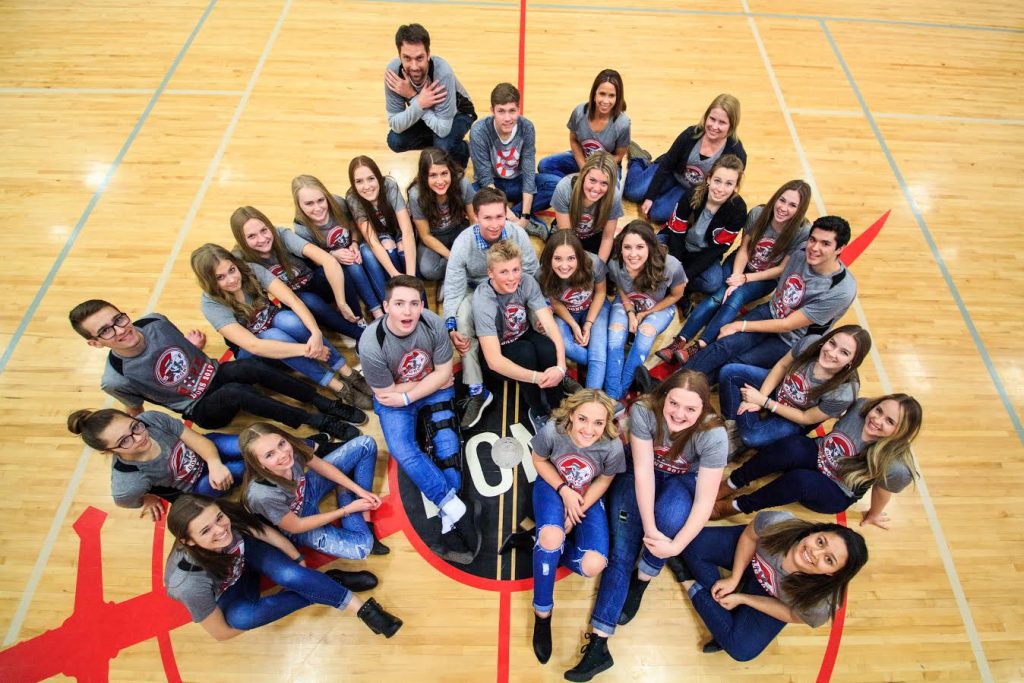
From sex education to school safety programs, Utah legislators made a variety of changes to laws that will affect Utah high schoolers’ daily lives during the 2019 legislative session. Below are four important high school education bills:
Proponents of better sex education get win
Utah schools’ sex education policies occasionally fall under fire for failing to properly address sexuality under many schools’ abstinence-only policies. But with the passage of HB71, those policies are about to change.
Utah teachers will now be allowed to address contraceptive methods in their health curriculum. Proponents of HB71 say it’s an advancement for better sex education in Utah schools. The state’s previous ban of “advocacy” of contraceptive methods caused many teachers to fear they would lose their job if they addressed contraceptives with students.
The bill wouldn’t drastically alter sex education, and teachers would still be required to “stress the importance of abstinence from all sexual activity before marriage and fidelity after marriage,” while still teaching about methods, pros and cons of different contraceptive types.
While critics believe the bill will promote promiscuity among youth, many bill supporters believe educating youth about contraceptive methods has the potential to decrease teen pregnancy rates and mental illness and prepare students to use family planning responsibly as adults.
“I think most all adults during the course of their adult life somewhere as they form their family use contraceptives,” said bill sponsor Rep. Raymond Ward, R-Bountiful. “Having a baseline knowledge about what your options are helps people make their families be able to turn out how they want them to turn out.”
— Lilian Whitney
Lawmakers approve bill to give schools more mental health aid
After rigorous debate and six versions of the bill, HB120 Student and School Safety Assessment will become law if signed by Gov. Gary Herbert.
HB120 allows the state school board to create and maintain safety protocols, offer training to schools and hire one expert from law enforcement and one with behavioral expertise. Bill proponents hope the added support from mental health and law enforcement at Utah schools will protect students.
Bill sponsor Rep. Raymond Ward, R-Bountiful, said he believes HB120 will help combat Utah minors’ high suicide rates in public schools.
“The biggest threat to our students safety right now comes when a student is in a very difficult place with respect to their mental health,” Ward said. “The thing that catches the headlines the most is if there’s a mass shooting and violence against others and rightly so, but when we look at the numbers when we lose students, suicide is a much greater threat. We see we lose 40 to 45 students each year to suicide.”
The bill that passed is significantly different from Ward’s original draft, which would have created threat-assessment teams and secured digital tools between school officials and local law enforcement at an estimated $1 million. Lawmakers cut those provisions in the final version of the bill, to be funded at $780,000.
— Lilian Whitney
Controversial standardized testing incentive bill gets an ‘A’
One bill this session aimed to help students get extra credit for good performance on standardized tests.
Rep. Mike Winder, R-West Valley, proposed legalizing academic rewards for students who perform well on standardized tests.
Though it would still be illegal to penalize students who opt out or perform poorly on the tests, HB118 would allow teachers to give participant incentives by replacing other assignments or exams with their standardized test scores.
Some teachers and parents said creating this kind of incentive would result in unfair treatment of students who opt out of testing or do not test well. They contend standardized tests scores are not a valid replacement for teacher-administered schoolwork.
“Some schools are saying, ‘OK, if you opt out, you have to go sit in the hall.’ Or, ‘If you opt out, you can’t have the pizza party with the rest of the class,” said former Utah teacher Christel Swasey. “For little kids, that’s really, really mean.”
Despite the opposition, HB118 was passed in the House and the Senate and now awaits Herbert’s signature.
— Harriett Norcross
Provo lawmaker’s bill to curb student fees stalls
Extracurricular activities can create financial obligations that may be difficult for students and families to meet. A bill sponsored by a Provo Republican to cap student expenses never made it past a House committee vote.
Rep. Adam Robertson sponsored HB273, which would restrict schools from charging students for field trips or require students to fundraise money. Robertson said he wanted the bill to continue promoting words in the state constitution which dictated that public elementary and secondary schools “shall be free.”
Fees such as instrument rentals, advanced placement tests, and school trips, all of which are above $100, can create burdens on families, according to Robertson.
The bill was written so it wouldn’t appropriate funding for activities, so many activities and classes currently offered to students would need to be funded by either the district itself or a by donation if they were to continue.
In such a case, Provo High School junior Carter Wininger said he would prefer to pay the fees.
“It would be nice to have no fees, but we wouldn’t have the opportunity to do some of the same fun things that we do now unless the state wanted to pay for it,” Wininger said.
— Katie Harris




